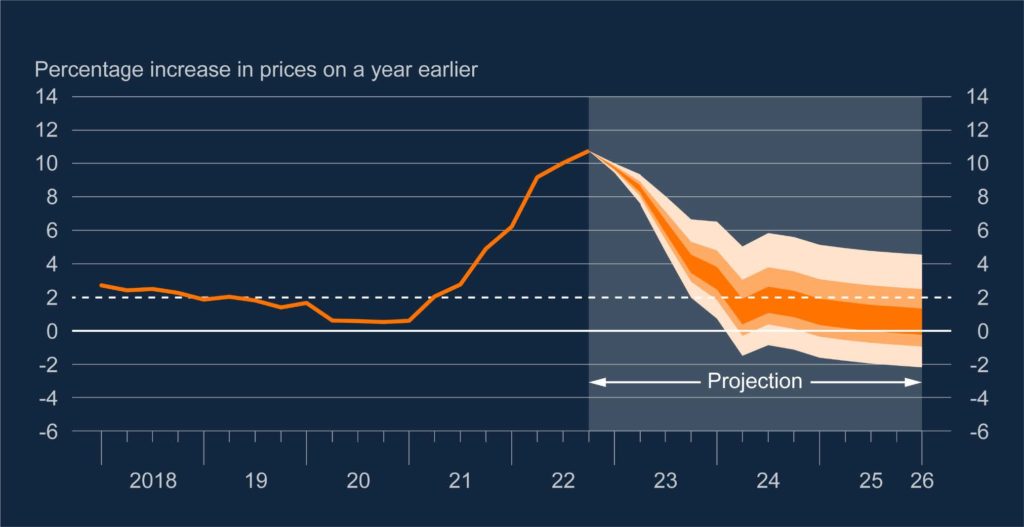Cash collection strategies for 2023
4D Contact, Global Debt Recovery and Credit Management ServicesWritten by Mark Smith
Read it in 6 minutes
 1200
627
1200
627
Written by Mark Smith
Read it in 6 minutes
Mark Smith
Written by Director of International Debt Recovery & Credit-Control provider 4D Contact, Mark is an invoice-to-cash process expert. He specialises in working in partnership with his clients to build and deliver bespoke solutions which secure cash targets and their customers an outstanding experience.
28 February 2023
With uncertainty underpinning the economy, what cash collection strategies can credit management and accounts receivables teams implement as we enter 2023 to ensure the business will maintain cash flow and remain liquid?

According to the Collins Dictionary “permacrisis” is the word of the year for 2022. A single word which defines a period of extended instability and insecurity, as stated by Collins it “sums up quite succinctly how truly awful 2022 has been for so many people” and as 2023 dawns, it encapsulates the current state of the world.
Putting aside the ongoing fall out of Brexit and Covid, Putin’s invasion of the Ukraine in 2002 has driven instability on an unprecedented level. It is the biggest land war in Europe since 1945, has led to the greatest threat of nuclear escalation since the Covid missile crisis, and seen the most far-reaching sanctions regime since the 1930’s. Meanwhile, soaring food and energy costs have fueled the highest rates of inflation since the 1980s in many countries and possibly the biggest macroeconomic challenge in central banking.

The Bank of England Monetary Policy Report for February indicates inflation has peaked and will fall throughout 2023. We have already seen a relaxing of the energy price pressures which were one of the key drivers. However, even with with the most optimistic forecasts, inflation will remain high throughout 2023 and is unlikely to reach the 2% target until the second or third quarter of 2024.
In an inflationary marketplace, many economies will at best stagnate and likely shrink. This is reflected in Bank of England UK growth forecasts and the low IMF growth projections for advanced economies.

It is critical that businesses prepare for this reality. If businesses learnt one thing during the Covid crisis, it is that during an economic downturn cash flow is king, so ensuring your credit management processes and procedures are optimized as we enter 2023 will be essential.
Optimising your cash collection strategies is even more critical in a downturn driven by inflation when cash on the balance sheet will be devaluing. Keeping DSO running at the lowest possible level and amortising ageing ledgers is essential.
It is critical to remember this all needs to be done when everyone else will also be looking to optimise their cashflow and will be tightening the purse-strings. Highly proactive credit-control and debt collection will be critical to keep cash flow moving. But with most businesses running lean teams already stretched to capacity how can credit managers best optimise their resource?
A robust collections strategy should be built to meet agreed targets. This ensures that credit and collections is recognised as an integral part of a business’ finance function and a vital piece of any cash strategy. This is particularly critical in a downturn when margins tighten, and every pound is a prisoner.
Unfortunately, credit and collections are often an overlooked, back-office function. Misunderstood in the critical role they play in keeping cash moving and maintaining customer relationships, it not uncommon for accounts receivables teams to both under resourced and invested. This can lead to cash collection strategies based on what can be achieved with the available resource rather than how to best deliver core business objectives. This can lead to strategies such as prioritising calls to key accounts who bring in the most revenue or only calling accounts that are in default. These strategies, based on assumptions rather than fact, can very easily lead to inefficiencies.
A company that has a cash strategy with clearly defined targets can make strategic decisions across all areas of the business on how best to achieve it. They can identify opportunities for investment in those forgotten areas such as credit and collections with costs easily be offset against the potential gains from more efficient and effective processes.
Despite being one of the business areas which can quickly demonstrate massive improvements in efficiency and effectiveness from digital transformation, investment in collections or accounts receivables software has often historically been side-lined for other priority projects.
If your business hasn’t already invested in a collections software solution, now is definitely the time to take the plunge. Collections software delivers the data insight on your customers payment habits to enable you to build intelligent workflows rather than a one size fits all collections process. Intelligent workflows place your customers on unique collection journeys, based on their historic behaviours. These will avoid unnecessary contact and calls for those customers that will always pay, whilst ensuring those who are at greater risk of default are identified and followed up promptly. This will not only ensure the efficiency of your collections team’s activity, reduce your DSO and your risk of bad debt but also improve your customers’ experience and your likelihood of securing future sales.
If your inhouse team is already working at full capacity this could be the time to look at an outsourced credit control solution to provide flexible and scalable support. Results-driven, they can usually be working your accounts within days rather than the weeks or months it takes to train and recruit staff. The costs are often significantly lower than increasing inhouse headcount and can be easily flexed to adjust to any changes in your requirements.
As 2023 commences the world is facing unprecedented uncertainty. In these periods of shift and change there will always be some businesses that thrive and find ways to grow and those that struggle and get left behind. What is critical to survival and success is ensuring your business is in the best financial position to not only weather the storm but also exploit any opportunities that arise. Cash flow has always been and will always be king.
Author: Mark Smith
Director of outsourced credit management solutions providers Barratt Smith and Brown and 4D Contact, and a major share-holder in fintech company Invevo, Mark has over 30 years of experience providing clients build strategic process solutions to mitigate challenging financial markets.
If you have a challenge within your credit and collections process and would like to discuss how 4D Contact outsourced credit management solutions could help, please click here to request a call back.
Contact us now at sales@4dcontact.com or on 020 37691487 for a no-obligation quote.
![[TOFU offer] eBook – A C-Suite executive’s guide to Delivering successful order-to-cash transformation](https://www.4dcontact.com/wp-content/uploads/2019/08/img-ebook-preview-order-cash-transformation.png)
A review of the considerations and tactics critical to achieving successful transformation within your order-to-cash function
Download free guide